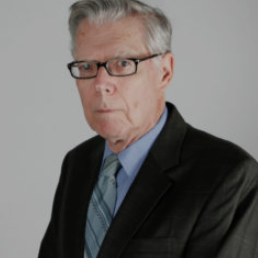
Britton, a Professor Emeritus of Latin American History at Francis Marion University who majored in history at UNC, attributes his success at the university to a scholarship he received while on campus, covering one third of his tuition. Calling the financial assistance “a very positive factor in my persistence at the University,” Britton has always wanted to give something back to Carolina.
“For the last fifty years, I have thought about reimbursing the University for the amount of money that the scholarship provided to me.”
When asked about his motivation for making this commitment to current students, Dr. Britton had an immediate response: “I think one of the serious problems in higher education today is a lack of emphasis on the humanities and the relevant social sciences in trying to deal with social and political problems, and in understanding how media play a role in dividing our nation.”
While underscoring the “captivating” academic experiences he enjoyed in the classroom, Britton is also eager to “convey an aspect of academic life at Chapel Hill that most people don’t even think about,” namely, his three years clearing the tables of wealthier classmates at Lenoir Dining Hall to pay for tuition.
Although his grandfather attended UNC briefly from 1860-1861, Britton lacked the family support and personal connections that he says many of his classmates enjoyed. As a graduate of a rural high school with 100 students, he had not taken many of the rigorous math and science courses that more privileged students from preparatory schools or large high schools in Charlotte and Winston-Salem were able to bypass in their first year.
“I worked part time as a bus boy in Lenoir Hall,” Britton recalls, “which meant that I cleared tables after people had eaten and carried a trayload of dirty dishes to the old conveyor belt.”
Unsurprisingly for the early 1960s, racism and segregation pervaded the UNC campus, and Lenoir Hall furnished no exception. While less affluent White students worked as bus boys in the main dining hall, employees of color were forced to remain in the kitchen. Britton recalls gratefully that the hustle and bustle of the dining hall afforded him some opportunity, however limited, to interact with his non-White colleagues. “During rush hour, the administration would send African Americans from the kitchen to help pick up the dishes. It was a temporarily integrated workforce, and quickly the old lines of separation would dissipate. We were able to talk.”
Britton remembers the early 1960s as an exciting time to be a student on campus: Radicalism was in the air. Fidel Castro’s name frequently came up in an upper division course on Latin America he took with Professor Lee Woodward. Britton recalls the Speaker Ban Law prohibiting communists from giving talks on campus during his sophomore year. Though Britton attributes his later scholarly interest in the Mexican Revolution to these and other events, he insists that the life lessons he learned as a bus boy were just as important.
“About a third of the bus boys were graduate students in philosophy, sociology, and library science. There were men in their mid-20s; some were 40 and some were veterans.” Interacting with these older graduate students “was like taking another course.” Britton fondly remembers the “informal, unstructured discussions with these older fellows who were very frank: They didn’t hold anything back. They leveled devastating critiques of their professors, which I later found out stemmed from frustration over their high standards and the pressure to do a good job.” He counts this “transformative experience that would never show up on a resume” as one of the highlights of his UNC experience. “I was fortunate to meet people who could be frank with you.”
Britton is grateful for the lessons, intellectual and otherwise, he learned at UNC, and the department of history is grateful for his generosity toward today’s students.
